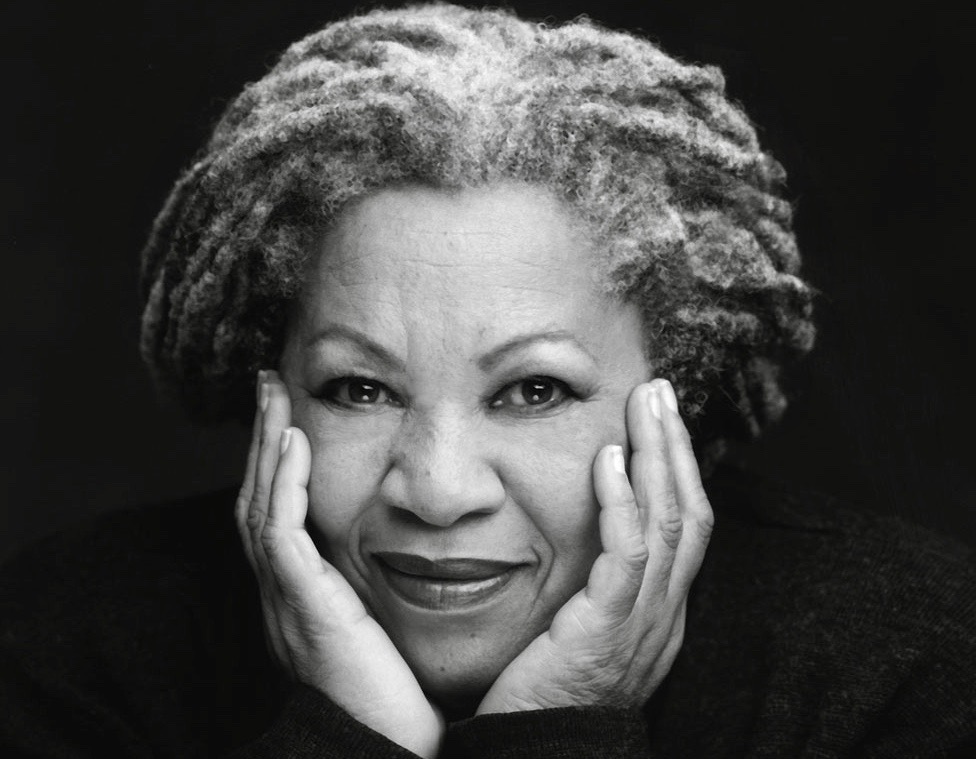All Hail: A Queen
In honor of the one: Toni Morrison.
The sole reason my 8 year old self ever entertained the thought of becoming a writer was because I had the writings of Black women, that were for Black women. Essence was my bible. Jet was my hymnal. These things I could not do without. They struck a nerve in my heart simply because these women were future versions of me! And even then, I knew that. I knew these Black, brown, tan, and even olive women who resembled my Crayola “skin” crayons were reflective of myself. I felt proud, included, desirable, seen. I felt beautiful. Capable. Hell, I felt exclusive. As though being a Black woman was a luxury club I was born into and I had only to find my way into full “Queendom”, just like they did.
This train of thought was before I was exposed to the ugliness of the world. Specifically as it relates to black women. And you know what I mean, Sis. I mean those monsters that creep in like shadows in the far corners of our rose colored worlds. The things that interrupt My Little Pony, Gulah Gulah Island and/or whatever else fit into our magical, wonderful childhood imaginations. They interrupt the dream that all is fair and you need only to be a good person in this life to be treated justly. Sometimes, the interruption smacked us like ice water from our slumber— suddenly, we’re wide awake to our supposed “otherness.” And unfortunately there is no returning back to unscathed bliss.
And then, I found Maya and Toni. My mother handed me their classic works and demanded I prioritized reading them. “You need to know your history and you need to know our authors.” My mom was always doing this. Always pushing me towards legends of the past and their work: James Brown, Gordon Parks, Nikki Giovanni, James Baldwin, Gwendolyn Brooks, Angela Davis, Langston Hughes, Toni Cade Bambara, Duke Ellington, among others. She pushed me far past MLK and Malcolm X (no disrespect) and deeper down into Black culture. And it was she who gave me my first copy of “Beloved.” And then, “The Bluest Eye.” And then, “Sula.”
“She is a friend of my mind. She gather me, man. The pieces I am, she gather them and give them back to me in all the right order.”
“Oh what a way with words” I thought, repeatedly. Toni Morrison had made literature an art. How beautiful and painful, dark and rosy, how juxtaposed and yet flowing her words were. How artistic. And from there my thoughts advanced to: I think I can do this too.
“In this country American means white. Everybody else has to hyphenate.”
In an era of Donald Trump, 2019-style organized racism, daily microaggressions and an abundance of over-exposure and lack of depth in artistry (I won’t name no names), I’ve often thought about the significance of the Black women who rose before us. Some of them have transitioned. A few still grace us. None can be repaid. I felt this last year with Aretha Franklin. I felt it watching a documentary on Nina Simone. I felt it listening to Mahalia Jackson and Etta James. I feel chills still looking at the works of Kay Brown, Lois Mailou Jones or Kara Walker. And I feel it still whenever I’ve re-read the works of Ms. THEE. The Queen: Toni Morrison.
It is the same feeling I feel watching the ever-regal Michelle Obama. Witnessing the songs and determined Blackness of Beyoncé. I feel it when I hug and kiss my nieces. And now, when I gaze into my 6 month old son’s eyes, knowing I will undoubtedly expose him to all the Black greatness my mother bestowed on me and more.
And so today, yet another heartbreaking moment where we reflect on the life and accomplishments of a Black legend, let us all take a minute to remember and give gratitude for the ones before us who broke barriers. Who challenged the status quo and who’ work spoke exclusively to us, as if we were the only one’s listening. We could never repay, however we can push forth the baton.
To our literary giant, the sublime Toni Morrison we black women say: rest well and in power, Queen. We thank you for your irreplaceable contributions to Black culture, to Black thought and to little girls who read your work and feel understood and more importantly, revived— when the dream has been interrupted.
“Make up a story... For our sake and yours forget your name in the street; tell us what the world has been to you in the dark places and in the light. Don't tell us what to believe, what to fear. Show us belief's wide skirt and the stitch that unravels fear's caul.”
To you we say: well done, beloved.






